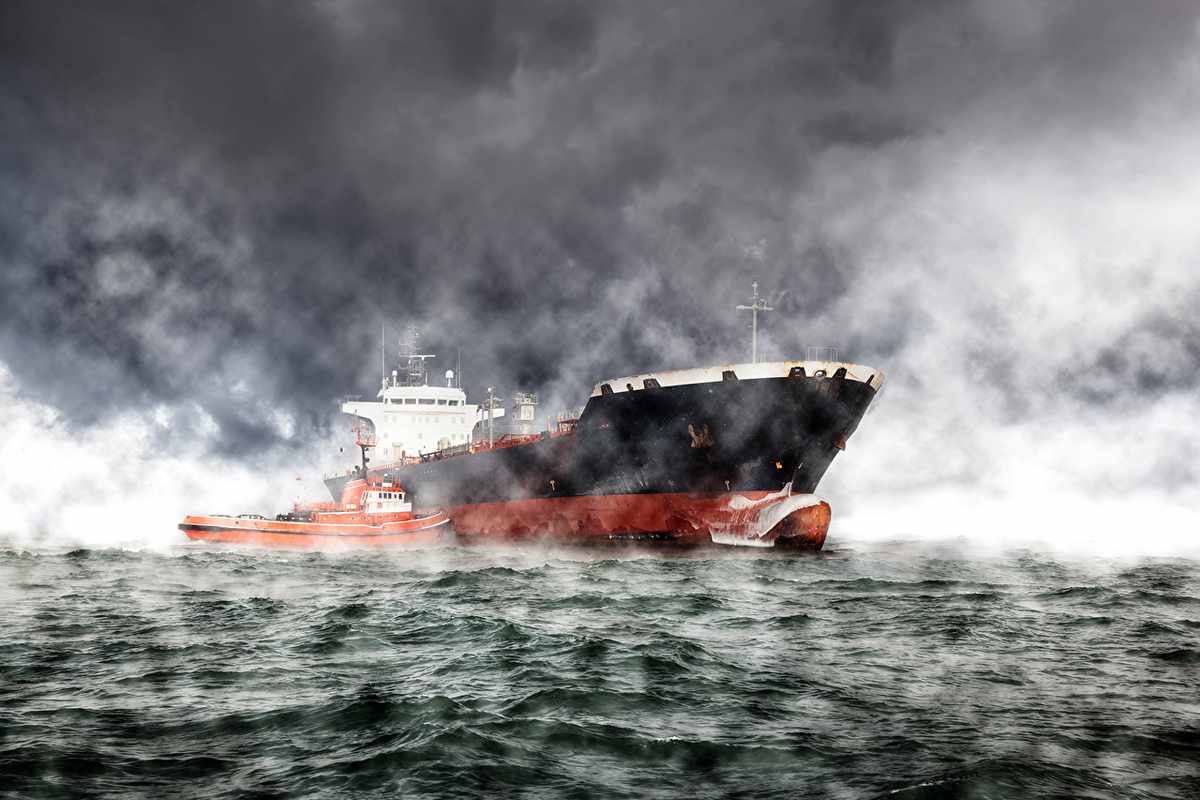It is time to regulate shipping now… or the planet burns
It is time to regulate shipping now… or the planet burns

Shipping - the world's dirty secret
International shipping carries around 90% of world trade and is responsible for roughly 3% of global greenhouse gas emissions. Shipping is the backbone of all global businesses underpinning consumerist lifestyles. However it has largely escaped the progressively tighter emissions regulation seen on land based transportation such as passenger cars. It remains the last sector of the economy with no regulation of carbon emissions in place.
Ocean-going ships run on heavy fuel oil, the residual dregs of the refining process, which is sold at a discount to the crude oil used to produce it. This has 3,500 times more sulphur content than the diesel fuel used by road vehicles in Europe and is more carbon intensive. Air pollution from ships is linked to approximately 400,000 premature deaths from lung cancer and cardiovascular disease alone and around 14 million childhood asthma cases annually, according to the latest research.
Shipping’s carbon emissions are handled by The IMO (International Maritime Organization), a branch of the UN. In April the IMO is meeting in London to discuss its climate obligations, air pollution measures and future targets - find out more about the meeting here - www.mepc72.com
How shipping can sink Paris
Shipping is not currently on track to reach a 2°C climate scenario according to the IEA. Further, the IMO predicts that industry emissions could grow by up to 250% by 2050. A 2015 European Parliament report estimated that shipping could be responsible for 17% of global greenhouse gas emissions by 2050 if left unregulated, potentially jeopardizing global ambitions set out under the Paris Agreement.
The 1997 Kyoto Protocol therefore gave responsibility for handling carbon emissions from marine fuels to the IMO (International Maritime Organization), the branch of the UN responsible for regulating global shipping. Through the 21 years since then, the shipping sector has managed to dodge this responsibility - it remains the last sector of the economy with no regulation of carbon emissions in place. The IMO did come up with some measures to improve the efficiency of ships in 2013, but these are widely seen as very lax, and there remains no binding cap on emission from the sector.
In April 2018, the IMO must agree a global GHG reduction plan with a level of ambition of 70-100% reduction on 2008 levels by 2050. If anything less ambitious is agreed, the shipping sector risks undermining the landmark 2015 Paris Agreement to keep temperature rise well below 2°C above pre-industrial levels, and strive for 1.5°C. Governments particularly within the EU have grown increasingly frustrated with the IMO, and pressure is very high for a deal to be reached at its meeting in London in the week of April 9-13 (known as MEPC72). As this is potentially the climate deal of the year, boosting ambition is vital.
The IPCC’s 1.5C report later this year will again emphasize we are a long way off track, and the Talanoa Dialogue will see governments discuss ways to limit warming to 1.5°C through 2018. At current consumption rates, shipping is due to blow its 1.5°C carbon budget in just 12 years, after which it starts eating into the carbon emissions remaining to everyone else. There are a very wide range of CO2 trajectories on the table at IMO. 50% cuts by 2050 (from 2008 levels) looks to have wide support, but is not compatible with a 1.5°C world. Japan is keener on 50% by 2060. In order not to sink Paris, shipping must aim higher, a for 70-100% reduction in carbon emissions, by mid century or earlier.
The UN IMO has been captured by corporate interests
See - How shipping lobbies to stay out of the Paris Agreement on climate - from Influence Map
Despite being responsible for close to 3% of global greenhouse gas emissions, the shipping sector remains outside of the UN Paris Agreement on climate. It has achieved this through corporate capture of the International Maritime Organization (IMO), the UN body responsible for regulating global shipping.
The three main industry trade associations represented at the IMO are the International Chamber of Shipping, BIMCO and World Shipping Council. They have lobbied to delay GHG emissions reduction measures for shipping until 2023 and rejected any binding greenhouse gas emissions targets. They have also collectively opposed ambitious energy efficiency standards and appear unsupportive of a price on carbon.
The International Chamber of Shipping (ICS), representing 80% of the world’s merchant fleet, is especially notable for their influence. ICS regularly appears alongside the IMO at official UNFCCC events, it brought more delegates to the most recent IMO environmental committee meeting than 85% of states and seems to leads efforts to oppose climate action for shipping.
At the most recent IMO environmental committee meeting 31% of nations were represented in part by direct business interests. The IMO appears the only UN agency to allow such extensive corporate representation in the policy making process. Electric ships powered by clean energy are possible
What can we do?
We believe that the IMO is open to influence from civil society and that it is very important for representatives to be present at the conference delivering a clear message that the world is watching and that we demand climate action to ensure the world does not heat up beyond 1.5 degrees celsius. If you would like to find out more about how you can get involved - get in touch.
Further Reading
- Uncharted Territory - The shipping industry needs to deliver cleaner cargo ships, or we’re all sunk
- UN Shipping Climate Talks ‘Captured’ by Industry
- Can We Be Honest About The Damage Shipping Is Doing?
- Direct evidence shipping interferes with climate and causes storms
- The shipping industry needs to clean up its act. Here’s where it can start
- Shipping pollution kills tens of thousands per year in Asia

From the Shop


